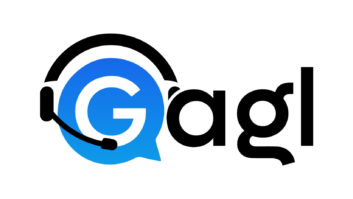A group of nonprofit municipal broadband providers�all members of the American Cable Association�support FCC chairman Ajit Pai�s proposal to reverse the classification of ISPs as common carriers under Title II and told him so in a letter dated May 11. The letter drew a swift and lengthy thank you from the chairman.
�By returning to light-touch regulation of broadband service, the Commission will give Muni ISPs incentives to invest in enhancing our networks and our deployment of innovative services at affordable prices while still ensuring consumers have unfettered access to the internet,� they wrote.
They also said the FCC’s �overly broad and vague� general conduct standard rule and other parts of the Open Internet order was based on the �unwarranted assumption� that they have the incentive or ability to be anticompetitive.
They said the FCC, in adopting the 2015 Open Internet order � over the dissent of Pai and fellow Republican Michael O�Rielly � ignored the evidence that they don’t block or throttle or engage in paid prioritization and put them in the �straight jacket� of utility regulation and the constant threat of action under the �unknown and unknowable� general conduct standard.
Pai is also no fan of the standard, with which the FCC can look on a case-by-case basis at conduct that might not fall under the no blocking, throttling or paid prioritization �bright line� rules if the commission majority concludes it impedes an open internet.
But they did not only talk about the negatives of the current regime. They said there will be definite benefits to reversing Title II, including a decrease in compliance costs and an increase in investment without the regulatory overhang of possible arbitrary actions or rate regulation.
The FCC is planning to vote May 18 on Pai�s Notice of Proposed Rulemaking, which would reclassify ISPs, wired and wireless, as information services not subject to common carrier regs; eliminate the general conduct standard; remove interconnections from net neutrality rules, and reconsider whether the Open Internet order rules and enhanced transparency requirements were necessary.
Pai has the votes to pass the NPRM, though commissioner Mignon Clyburn could block a vote by not attending the May 18 meeting and denying him a quorum. She has vowed to fight the rule rollback and called on others to do so but has not said whether or not that resistance extends to denying the quorum.
The muni ISPs were from all over the map, Massachusetts to Alabama and Iowa to the eastern shore of Maryland.
Calling it an “exceptionally important contribution to the debate over restoring Internet freedom,” Pai’s response to the letter was unusually swift and came in a lengthy statement, reprinted below.
�Nineteen non-profit, government-owned internet service providers expressed their support for my proposal to end utility-style regulation of ISPs based on Title II. These non-profit ISPs serve small towns across America, from Bagley, Minn., to Tullahoma, Tenn. They told us that the FCC�s heavy-handed rules have led them to �often delay or hold off from rolling out a new feature or service. As a result, [their] customers lose out on having access to innovation and new capabilities.� They also explained that �these rules are so complex and so difficult to fathom [that] we must pay lawyers and consultants to provide advice and direction to minimize any risk that we will be judged after-the-fact to be out of compliance.�
�On the other hand, these non-profit municipal ISPs explain that my proposal to restore internet freedom �will provide real benefits to [their] customer-owners with no downside.� Among other things, they say that �[t]he cost of regulatory compliance will go down� and they �will have greater certainty that [their] investments and development of new services and features will pay off.� In sum, a return to light-touch regulation will enable them �to invest in enhancing [their] networks and [their] deployment of innovative services at affordable prices while still ensuring consumers have unfettered access to the internet.�
�I thank these non-profit ISPs for sharing their perspective on this important issue. The fact that ISPs lacking any profit motive agree that eliminating Title II regulation will benefit consumers and promote innovation and investment is a powerful endorsement of reversing the FCC�s 2015 Title II Order.�
This article was posted on B&C originally.












